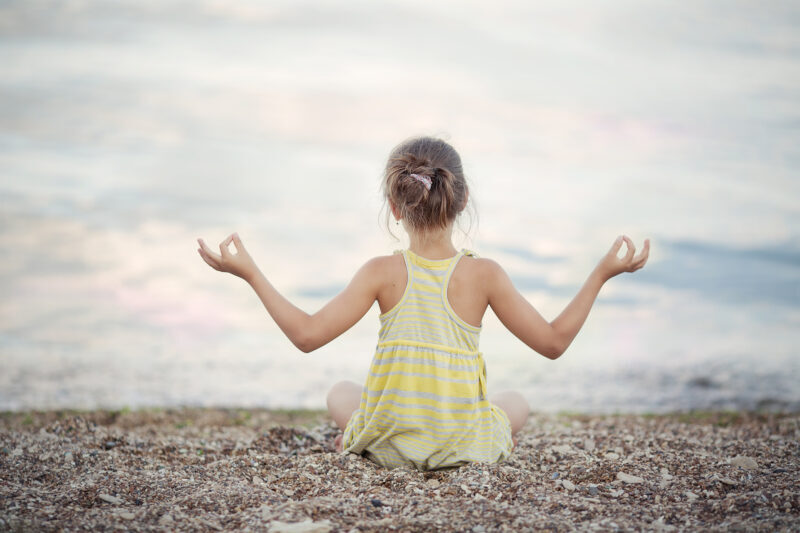What Is Mindfulness (To You)?

MINDFULNESS: NOUN
mass noun
The quality or state of being conscious or aware of something.
‘their mindfulness of the wider cinematic tradition’
A mental state achieved by focusing one’s awareness on the present moment, while calmly acknowledging and accepting one’s feelings, thoughts, and bodily sensations, used as a therapeutic technique.
The idea that having a clear/whole awareness of one’s mental state, thoughts, feelings, and bodily health leads to less suffering is one of the fundamental principles of Buddhism. Right Mindfulness is after all one of the practices of the eightfold paths. According to the Buddha, one’s thoughts shape one’s experiences thus ultimately, whatever goes on inside the mind, determines one’s happiness. When I tried to introduce this concept to my children, they had the same response despite the 3 year age difference. “Are you trying to say that we…make ourselves unhappy? That it’s our FAULT that we are unhappy sometimes?”, they inquired. This ignited a curiosity within me which led me to explore how adults would respond to the same notion. Needless to say, what I found most interesting was that the adults I ran this by had the same initial reaction, until they came around to the realization that without our thoughts around what happens, we wouldn’t be suffering (as much) . This concept is the root of Byron Katie’s The Work, which focuses on helping people end their own suffering. “Don’t believe every thing you think”, she says, although my favorite Byron Katie quote remains “I am a lover of what is, not because I’m a spiritual person, but because it hurts when I argue with reality.”
The growing popularity of Mindfulness in the past few years has taken many different shapes and is no longer exclusively analogous to the Buddha’s teachings but rather, it is served within the umbrella of spirituality, progressiveness, etc. Even corporations and educational institutes have adopted the practice of Mindfulness and meditation to improve focus, productivity and so on and so forth. That said, today’s post seeks to explore what Mindfulness means for you as an individual.
How do you practice Mindfulness? As I spoke with my peers, I couldn’t help but discover that somehow, Mindfulness is mainly perceived as something you do for others or to improve focus and productivity. It became apparent that there was a theory that being mindful was synonymous with “minding other people’s feelings” therefore the person being mindful need not evoke feelings in another that are negative. Somewhat, I got the sense that Mindfulness was perceived as a mode of interaction that was sanitized, almost saintly, a state of being that was careful not to upset, disappoint, or hurt others. That Mindfulness was something “for others”. Notice how offering understanding, patience, empathy, and compassion comes easy when you do it for others yet offering the same understanding for oneself does not come as easy? It is through deconstructing this thought as I awaited a family member’s visit a while back that I formulated a mantra that has not only turned my thinking around but it has also reduced the suffering in my life. If I am peaceful there will be peace. If am mindful with myself, I will be mindful of others. If I am grateful for what others bring to my life and the lessons they bring, there will be gratitude. Those who know me well may recognize that is the story behind the my regular hashtag #peacefulmindfulgrateful.
Mindfulness begins with you.
Be alert to your thoughts and where they take you – As Epictetus said “It is not he who reviles or strikes you who insults you, but your opinion that these things are insulting“.
Be kind to yourself – you deserve it.
Be gentle with yourself – it is the humane thing to do.
Be thoughtful with yourself – you do not deserve the suffering your thoughts evoke.
Be Mindful with yourself – how can you do for others what you cannot for you?
As I ponder the oxford dictionary’s definitions of Mindfulness, I cannot help but feel that the dictionary can never fully put to words the depth of Mindfulness but it does make me feel the urge to exuberantly wrap my arms around myself, and continue to live mindfully thus embodying the change I want to see in the world.
If you can truly be mindful with yourself, then Mindfulness for others will not only come from your most sacred and authentic place, it will liberate you from the perception and chimera that the responsibility for the happiness of others lies with you. You are not anyone’s keeper, nor are you responsible for their exposition of your actions, but you can model a version of Mindfulness that is mindful of you and by default, others.
“To accuse others for one’s own misfortunes is a sign of want of education. To accuse oneself shows that one’s education has begun. To accuse neither oneself nor others shows that one’s education is complete”. Epictetus




